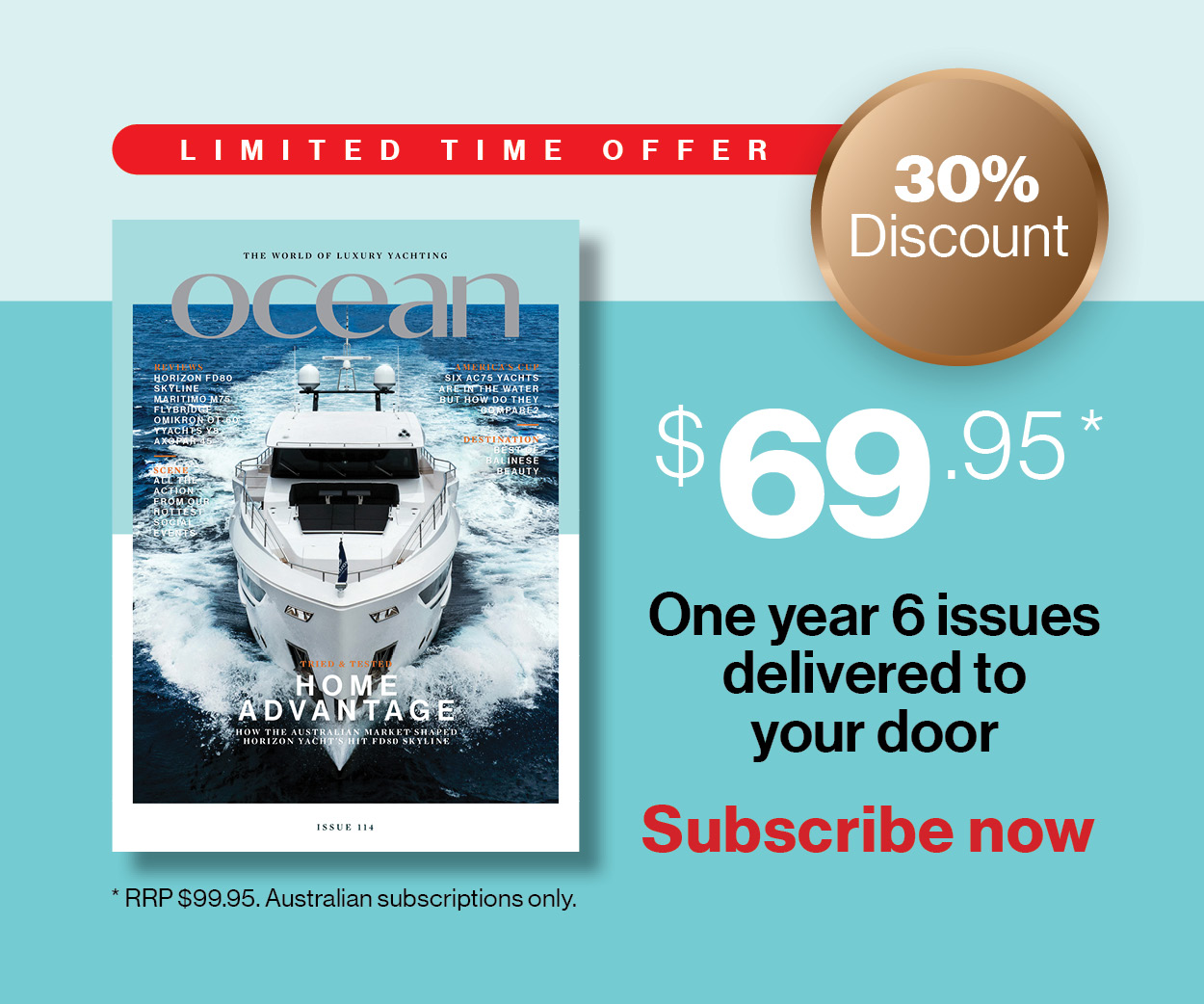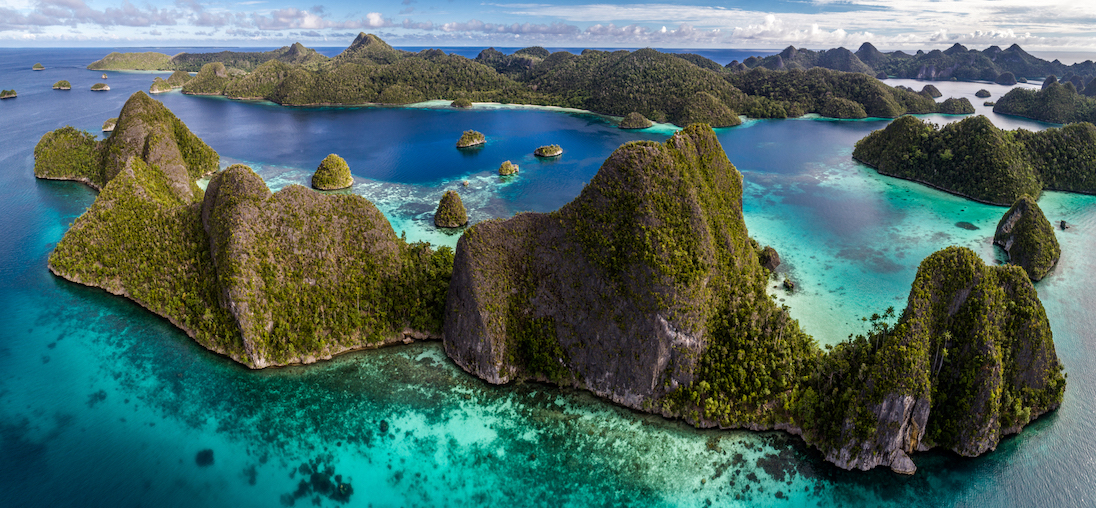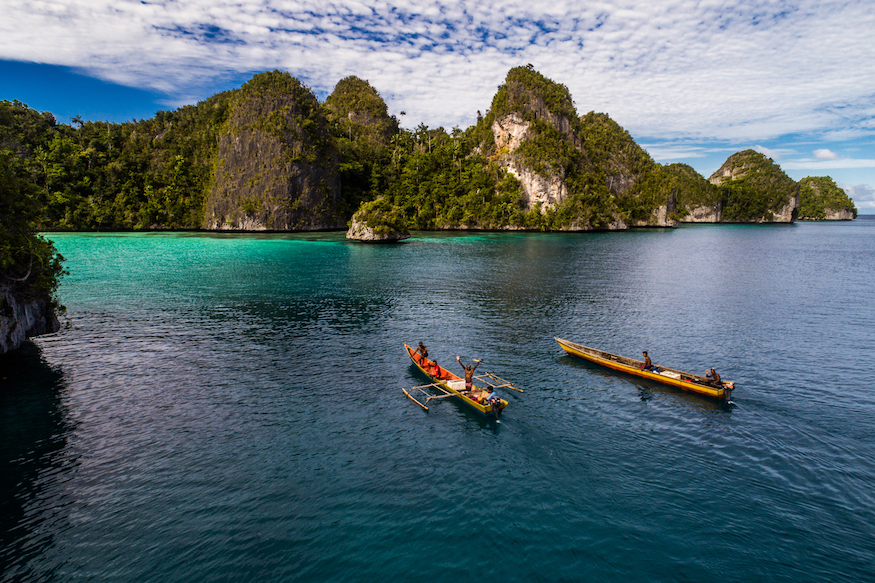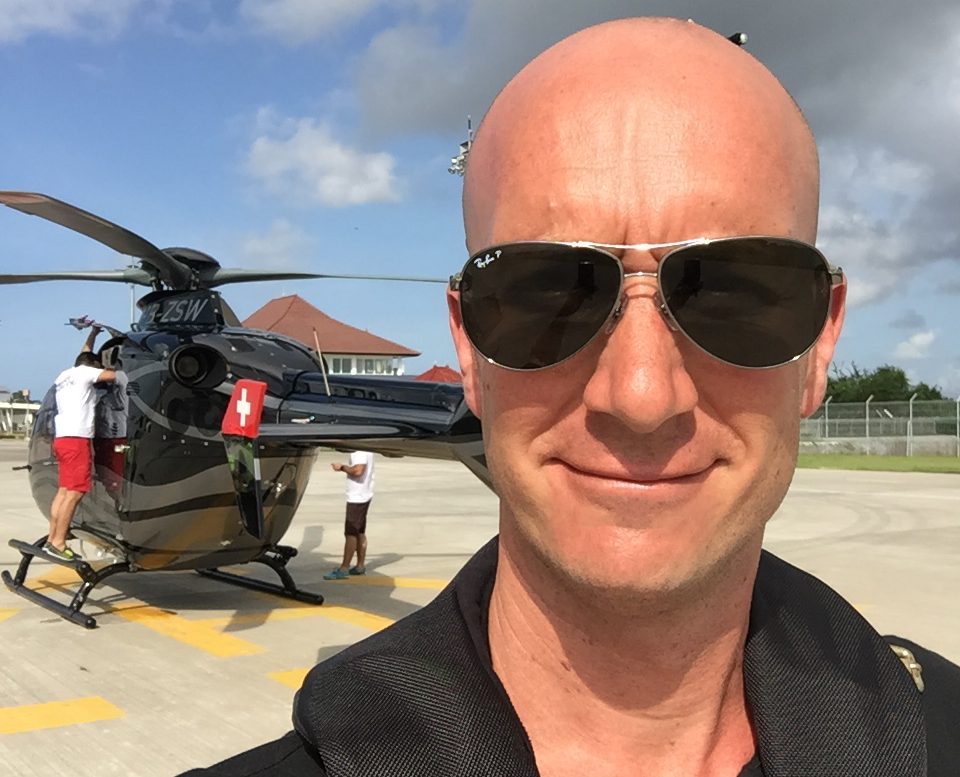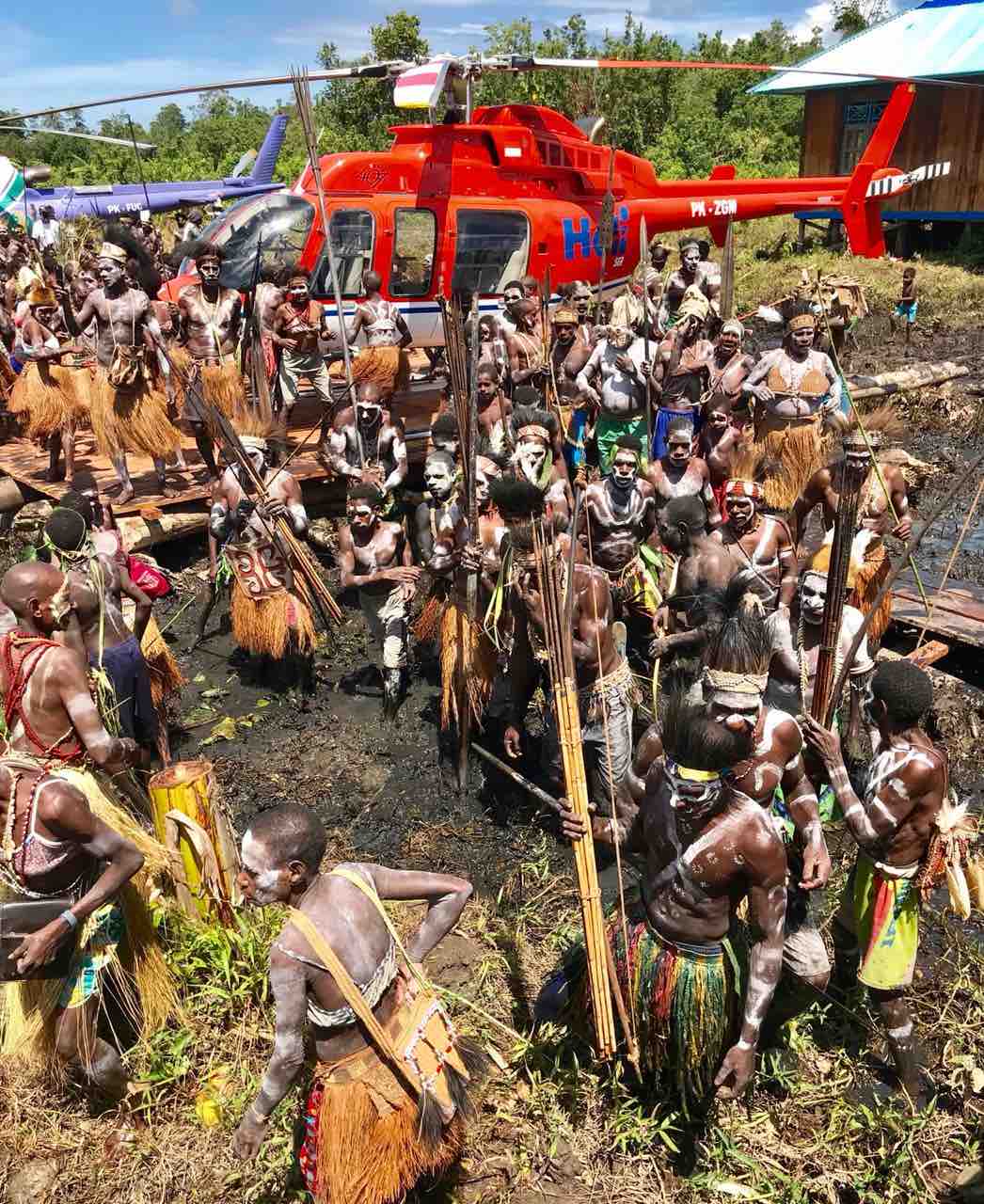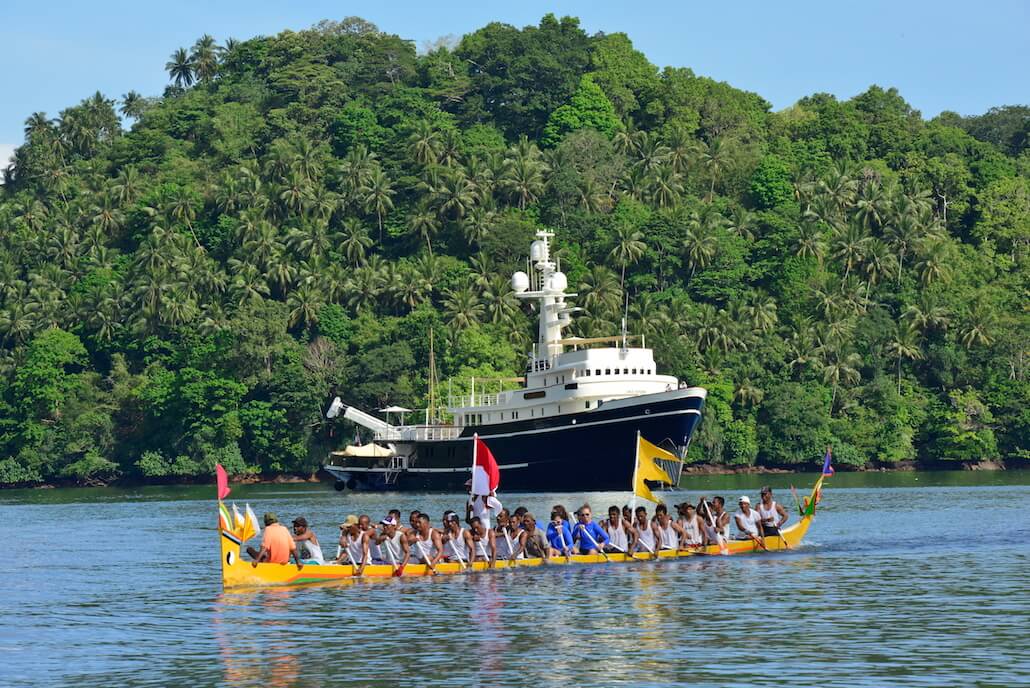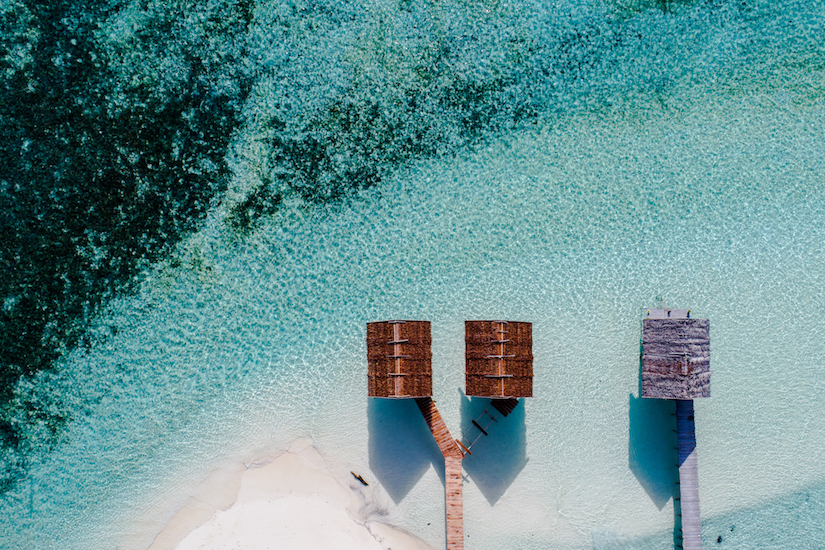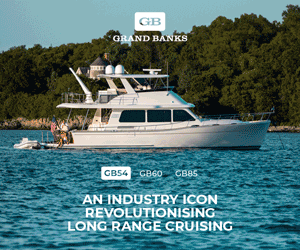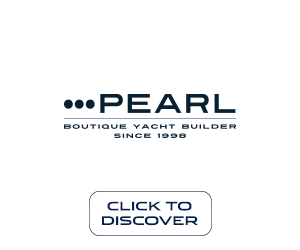Lighting the way
Covering an area the size of mainland USA, Indonesia offers adventurous yachts a host of once-in-a-lifetime experiences, but cruising off the beaten track has its challenges. Andy Shorten, CEO of The Lighthouse Consultancy, explains the importance of getting the right advice and describes how the region is slowly waking up to the needs of visiting yachts.
19 September 2019
You have been at the helm of The Lighthouse Consultancy for 8 years. What led you to pursue a career in yachting, and how did you first enter the industry?
We actually started Lighthouse in 2011 after helping vessels privately for a few years prior to that. Being in the marine tourism industry in Indonesia since 2002 and coordinating extended cruises for the international dive market meant we had a lot of expertise in the cruising grounds. We weren’t really aware of the existence of shore support, or the potential of yachting, until friends of friends asked us to help out with a yacht that was having some difficulties with its permits. We helped them overcome their challenges and then the captain asked us to support them with logistics for the rest of their trip, which turned into multiple trips over three years in the region.
Those logistical support requirements were pretty much what we did for the local dive vessels on a day-to-day basis, so we had the network and infrastructure in place and we really enjoyed working with the yachts. Captain Raymond then recommended us to a number of other visiting vessels and things grew from there.
We’re still great friends with Raymond even now, and I think that is what may be unique about our company and Indonesian cruising – because we are involved so heavily in the cruising experience of the yachts we build a strong rapport with the captains and crew, and generally we end up keeping in touch with them all. It makes for a really personal business and really leads to our whole team wanting the best possible experience for our clients.
What skills did you bring, and which ones did you need to acquire over the years to survive your role?
I think my best skill is communication. Maybe you’ll find a few people who will say I talk too much, but there is a fine line, right… Planning to come to Indonesia has a whole array of considerations that need to be addressed long before arriving, so that choices can be made rather than situations dictating decisions. These considerations need communicating effectively to captains during the planning stages. What we always try to do is to pre-empt a captain’s questions, providing them with information based on our experience of what previous vessels have needed to know. Captains are busy, so having concise but detailed information is important. When we do have specific questions, my goal is always to answer, and then give advice on follow-up questions before they are asked, in order to try to help streamline the experience and minimise the time that has to be spent going back and forth.
Skills I have had to acquire would be clearer organisation. The day-by-day, hour-by-hour schedules we produce for guest movement and clearance days really help keep everyone in the loop. The challenge for our company is that we have to do these schedules for each of our yachts, as often we’ll have guests’ movements, or clearances, or provisions deliveries happening in different ports on the same day, and there really can be no balls being dropped. Every single element is important, so keeping a track of it all is vital in case a captain or crew member needs to call for an update.
Another skill I needed to develop was my Indonesian language as it’s fundamentally important to be able to stand with local officials and authorities to be present in discussions. In the very remote ports some of the officials don’t see yachts for months or years, so we often have to explain the applicable procedures, particularly if new regulations have been implemented. Being able to do that in Indonesian enables a much more direct conversation and also increases the potential of a respectful interaction.
What is your company’s speciality?
Lighthouse is pretty simple – we just help people enjoy Indonesia.
We are so fortunate that the cruising here is so beautiful, and we just need to make sure the vessels are equipped to focus on their guests’ experience rather than worry about logistics. Whether this is by generating extensive cruising itineraries, ensuring that provisions arrive with a high survivor percentage, or even just being a friendly face arriving on the speedboat with the CIQ clearance officers, our goal is to put everyone’s mind at ease. I honestly believe that captains risk their jobs recommending their owners to visit remote areas like Indonesia. If things go wrong and the boss’s vacation time is wasted, there will be major repercussions for anyone involved in the planning, so we really have to make sure things are ready. Appreciating the importance of that has been paramount in developing the company.
The challenge with yachting is that one wrong move can smash you – if an owner pick up is 10 minutes late it’s pretty much a disaster! We have to make sure everything is planned and wholly accurate. Doing that in Indonesia – in small port towns particularly, where mindsets are more laid back – it can seem like yachts are from a different planet. At one stage last year we had 10 yachts across the country at the same time, so the scheduling and organisation of that timeframe was pretty complicated. We got it done though, and everyone left happy. It must have been okay as a couple of the yachts are heading back this year for another round of cruising.
What are some of the major changes you have experienced over the years being at the forefront of superyacht consultancy and support services in the area?
In some ways Indonesia has changed a lot, and in others it remains pretty similar to how it always was. There are certainly more vessels looking at heading our way, which is a very positive change, but with that come logistical and infrastructure challenges. Every change has a knock-on effect and some changes that are implemented actually make other things harder.
The biggest change we have seen was the removal of the CAIT cruising permit that we used to have to procure for visiting vessels. Removing this document enabled the timeframe for application approvals to reduce significantly and it was presented to the industry that things were much easier. However, the same documents still need to be submitted and CIQ clearances remain necessary, so those changes didn’t have a major effect on the work required by vessels, they just mean it can be completed in a shorter timeframe. The positive is that there is Government interest in marine tourism, and it is hoped that in the coming years continued growth will lead to more public and private sector investment, which in turn leads to better infrastructure.
Indonesia has been quite a difficult area to attain cruising permits and the never-ending paperwork. Has this got any better, and what do you see as the government’s main concern of yachts cruising around its islands?
Indonesia does have a reputation of being difficult. But if you engage reputable and experienced shore support services it will take the challenge out of the process. Some of the problems we have heard people facing have resulted from trying to cut corners or not following the proper protocols when arriving – it may cost a bit more, but it’s much better to get some advice on what to do.
Progressive Indonesian President Joko Widodo has made marine tourism a major focus in his plans for developing the country and his Government has tried to facilitate more foreign flagged vessels visiting. There is minimal differentiation between cruiser yachts, superyachts and larger private vessels, however, so we are regularly involved in trying to lobby, guide and educate authorities about what regulations may work and what may not. Certain regulations have been implemented that hold the industry back, and with multiple officials interpreting the regulations in different ways in each port it isn’t always super straightforward. That is where our experience comes in, and we are very confident that our services provide value for the visiting yachts. Once we have eased them through challenges and once our captains see what we do, the relationship evolves and the trust grows.
Multiple departments of government are involved in issuing permits for vessels to visit the country, and whereas some departments may be flexible, others may not want to make any changes. We see this in the challenges we currently face allowing foreign-registered helicopters arriving on yachts to operate in the country – the Tourism Department would like it to be allowed, but the Ministry of Defence has protocols prohibiting it. Customs also have regulations in place for a broad spectrum of industries and are reluctant to make something specific for the yacht industry.
What is the one experience or location that owners want to go to while in this region?
There are really just so many. Bali’s private fire dances, visiting Komodo’s dragons, Banda’s Kora Kora canoe races, Asmat tribal experiences, Raja Ampat’s swimming with mantas, and Cendrawasih’s whale sharks – the diversity is what makes Indonesia so incredible, and makes it hard to answer a question about one activity guests must do.
We have heard many heart-warming stories of owners and guests assisting the local community with items of medical items and school equipment. What is one great story you are able to share with us?
One of our yachts visited a small island close to Komodo where they donated books and school supplies, and met all the school kids in class too. It was probably the first interaction many of the kids had had with people from another country. The teacher was so grateful, and they brought the kids to the dock to wave goodbye – then the whole class sang on the dock.
The captain told me that it was exceptionally moving and there were very few dry eyes at the end of that.
In Indonesia, what is one area that is a “not to miss” experience.
There is an location to the north of Raja Ampat called Wayag. It’s a series of undulating karst formation islands that form protective lagoons, set in the clearest waters, with a couple of the most idyllic anchorages you will see anywhere in the world. I think a couple of days there will live long in the memory of anyone lucky enough to visit.
To read the full interview, pick up a copy of Ocean #87, out now!


